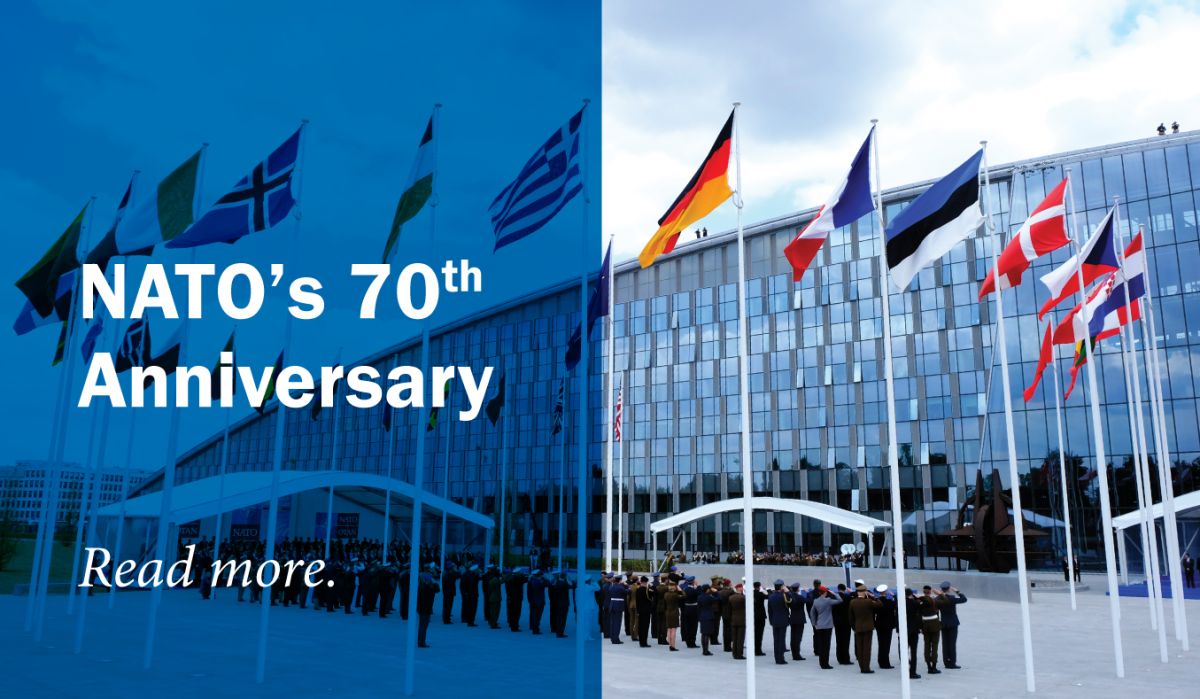Complementarity, not Competition
"France’s posture has traditionally aimed to find the right balance between being part of the Western bloc and keeping its independence in foreign and defense policy." – Alexandra de Hoop Scheffer and Martin Quencez
 France is a founding member of NATO and has always seen itself as a key military and security actor in Europe. Over the last 70 years it has also had a particular role and voice within the alliance, as the French vision of the transatlantic alliance has often differed from the one promoted by the United States. More recently, the idea of a “global NATO” aligned with U.S. priorities, including increasingly vis-à-vis China, has been problematic for France, while Washington still fears that French-led initiatives in European defense cooperation threaten or duplicate NATO and the U.S. security commitment to Europe.
France is a founding member of NATO and has always seen itself as a key military and security actor in Europe. Over the last 70 years it has also had a particular role and voice within the alliance, as the French vision of the transatlantic alliance has often differed from the one promoted by the United States. More recently, the idea of a “global NATO” aligned with U.S. priorities, including increasingly vis-à-vis China, has been problematic for France, while Washington still fears that French-led initiatives in European defense cooperation threaten or duplicate NATO and the U.S. security commitment to Europe.
France’s NATO story is deeply linked to its strategic vision for and within the transatlantic relationship in general. In 1966, President Charles de Gaulle’s decision to withdraw the country from the integrated military command structure while it remained an active member of NATO symbolized its special place. Traditionally defined as “friend, allied, but not aligned”, Paris’s posture has traditionally aimed to find the right balance between being part of the Western bloc and keeping its independence in foreign and defense policy. Although France never left NATO, the memory of France’s balancing will continue to influence the way it is viewed by other allies, especially those in Central and Northern Europe for whom military protection by the alliance and the United States is vital.
After the end of the Cold War and of the bipolar world, this position had to be revised. Traditionally attached to a vision of the alliance as a military rather than a political one, significant debates took place in the French political and strategic community about NATO’s raison-d’être in the 1990s and 2000s. During the same period, French troops took part in NATO operations in the Balkans and Afghanistan, with 70,000 soldiers sent to Afghanistan between 2001 and 2014. The 2008 decision by President Nicolas Sarkozy for France to reintegrate the military command structure was meant to “normalize” the country’s place in the alliance and to increase its influence at the political and bureaucratic levels.
Ten years later, despite this normalization and its participation in NATO reassurance initiatives in Central European and Baltic states, France continues to have a singular image inside the alliance. Its drive to deepen European defense cooperation is often perceived as indirectly weakening the transatlantic link and duplicating NATO. For France, European security and defense issues are such that all formats (bilateral, minilateral, and multilateral) must be used in a complementary and diversified manner.
France’s commitment to NATO should remain strong in the near future. Official strategic documents define the alliance as the main guarantor of European collective defense, and Paris is increasing its efforts to strengthen NATO’s deterrence posture. More importantly, France promotes the deepening of European defense cooperation within the EU or in ad hoc frameworks in complementarity with NATO, not as an alternative to it. This pragmatic approach is likely to remain the same in the coming years, as the alliance with the United States is a necessity but cannot address all the security challenges that European countries will face in the future.
New threats have stemmed from technological innovation and the transformation of the strategic environment around Europe. The alliance built in the Cold War period provides answers for 20th century threats but is not necessarily the best format of cooperation to address all of them, especially when they take place under the threshold of Article 5. For instance, in the French perspective, NATO cannot be the sole vehicle for responding to cyberattacks and terrorist acts, and overreliance on the United States is an issue for European security.
In parallel, the evolution of the transatlantic relationship will continue to play an important role in the French position on NATO. France is particularly concerned that too many allies consider the long-term U.S. commitment to European security as a given. For Paris, the United States will increasingly seek to share the burden of defense with its partners, and Europeans must prepare to become more autonomous operationally and strategically, especially in Africa and the Middle East, where France seeks to “Europeanize” the military element in the fight against terrorism, while the United States is reallocating its military resources within and out of the region. The more Europeans demonstrate capacity to tackle this issue (as well as the migration crisis), the more credibility they will gain as strategic partners in the eyes of the United States.
Finally, the evolution of politics in France could affect its commitment to the alliance in the longterm. NATO is not seen in the country as protecting it against an existential threat, and the alliance’s significance is regularly questioned by political leaders, notably on the far right and far left of the political spectrum. Anti-establishment parties are generally very critical of the transatlantic partnership and continue to denounce President Sarkozy’s 2008 decision. The political prospects of these parties will largely define the role of France in NATO in the coming decades.
Read the full publication »
Photo Credit: Arkadij / Shutterstock
